
In traditional Sámi music songs and joiks are important musical expressions of the Sámi people and Sámi languages. The Sámi also use a variety of musical instruments, some unique to the Sámi, some traditional Scandinavian, and some modern introductions.
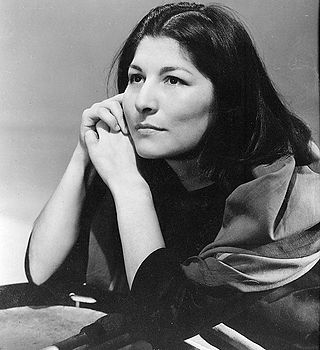
Haydée Mercedes "La Negra" Sosa was an Argentine singer who was popular throughout Latin America and many countries outside the region. With her roots in Argentine folk music, Sosa became one of the preeminent exponents of El nuevo cancionero. She gave voice to songs written by many Latin American songwriters. Her music made people hail her as the "voice of the voiceless ones". She was often called "the conscience of Latin America".
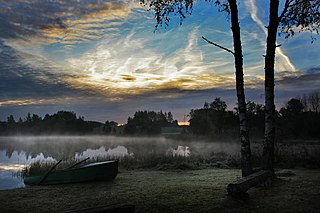
Võru County is a county in southern Estonia. It is bordered by Valga and Põlva counties, Latvia's Alūksne and Ape municipalities, and Russia's Pskov Oblast.

Võro is the language of South Estonia, belonging to the Finnic branch of the Uralic language family. Governmentally, it has been considered a dialect of the Estonian language along with all varieties of South Estonian. However, many linguists consider South Estonian to be an independent Finnic language. It has its own literary standard and efforts have been undertaken to seek official recognition as an indigenous regional language of Estonia. Võro has roughly 75,000 speakers (Võros), mostly in southeastern Estonia, in the eight parishes of the historical Võru County: Karula, Harglõ, Urvastõ, Rõugõ, Kanepi, Põlva, Räpinä and Vahtsõliina. These parishes are currently centred in Võru and Põlva counties, with parts extending into Valga and Tartu counties. Speakers can also be found in the cities of Tallinn and Tartu and the rest of Estonia.

Setos are an indigenous Finnic peoples and linguistic minority that have historically lived in the borderlands between modern day Estonia and Russia. Setos have historically spoken the Seto language and been Orthodox Christians. The Seto language belongs to the Finnic group of the Uralic language family. Since the early 2000s, the Setos have sought greater recognition, rather than having their language considered a dialect of Estonian. Eastern Orthodox Christianity, with influences from local folk religions is widely practiced by the Seto peoples.

Võru is a town and a municipality in south-eastern Estonia. It is the capital of Võru County and the centre of Võru Parish.

Ariane Moffatt is a Canadian singer-songwriter. Known for working across multiple musical genres, Moffatt's music combines elements of electronica, jazz, folk, and pop. A francophone, she is bilingual and has recorded tracks in both French and English. Her 2002 debut album Aquanaute went platinum in Quebec, earning 11 nominations at the 2003 ADISQ Awards and winning three Félix awards. She is known in Quebec for two well-received singles from Aquanaute: "La barricade" and "Dans un océan".

Ana Silvera is an English singer-songwriter, multi-instrumentalist and composer.
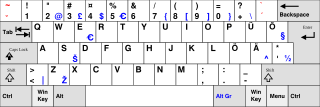
The official language of Estonia is Estonian, a Uralic language of the Finnic branch, which is related to Finnish. It is unrelated to the bordering Russian and Latvian languages, both of which are Indo-European.

Sandra Nurmsalu is an Estonian singer, songwriter, and violinist. Recognized within Estonia for her genre-bending style, Nurmsalu has garnered success as both the lead singer of Urban Symphony and as a solo artist.
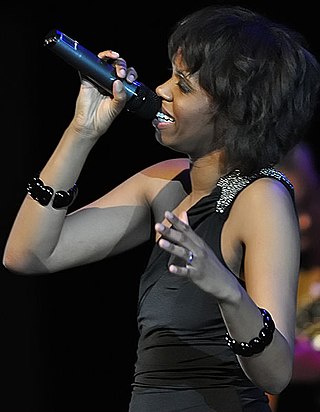
Kellylee Evans is a Canadian jazz and soul music vocalist.

Mari Kvien Brunvoll is a Norwegian folk and jazz singer who has attracted attention at festivals internationally with her solo concept, where the voice is complemented by small electronic and acoustic instruments in a sound inspired by jazz, pop and folk music.

Elizabeth Gomez, known as Elizabeth Le Fey also known by the stage name Globelamp is an American singer-songwriter, musician, and producer from Mission Viejo, California.
Hilje Murel is an Estonian stage, film, and television actress.
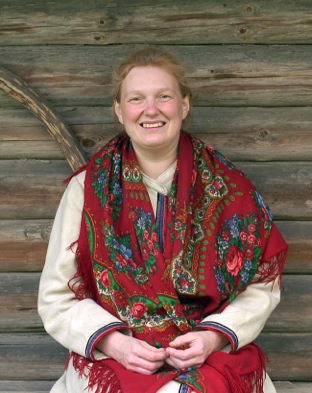
Kauksi Ülle is an Estonian writer.

Pille Lill is an Estonian opera singer (soprano) and an active member of the cultural life, the founder and artistic director of PLMF Music Trust.
Kärt Tomingas is an Estonian stage, television, voice and film actress, singer, lecturer and acting and theatre pedagogue. Tomingas' career began in the 1980s as a folk-pop, rock and jazz singer and soon after began a career as an actress. Since 2008, she has been an acting lecturer and has taught acting.

Maarja Nuut is an Estonian singer and violinist. After first studying classical music, she turned to folk, adopting the village style of traditional Estonian songs. She debuted as a solo artist in 2013, winning the Artists Prize at Tallinn Music Week. In 2016, she began to collaborate with Hendrik Kaljujärv, who creates his own abstract electronic sounds. Together they have formed a successful duo, releasing recordings and performing at international festivals.

Hildá Birget Länsman, also known by her Saami name as Ánn-Ovllá Káre Jari Hildá is a Sámi singer, yoiker, and musician from Finland. In 2025 she is releasing the first album under her own name, an electronic music collaboration with finnish artist and producer Tuomas Norvio.
Hella Keem was an Estonian linguist and ethnographer.


















